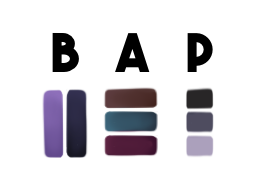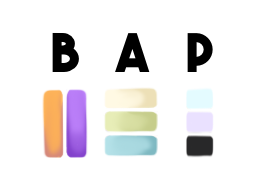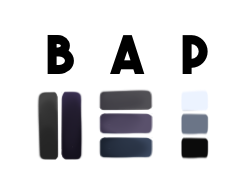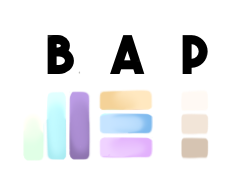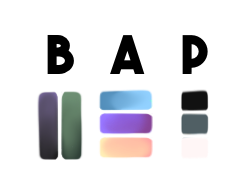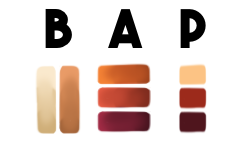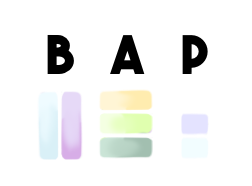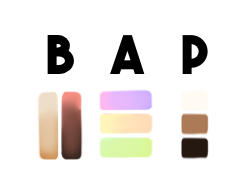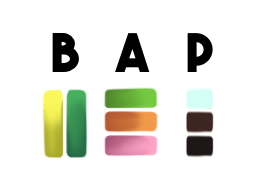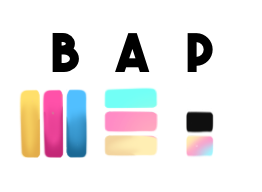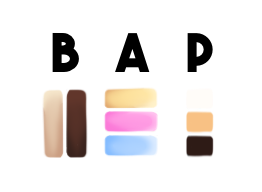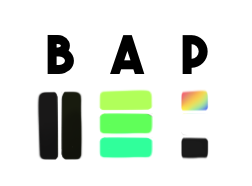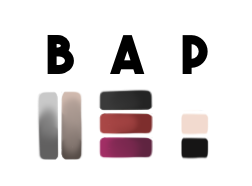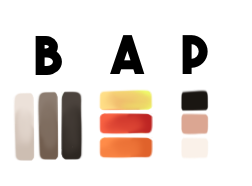Traits
Wine Gene (Rare)
This trait grants the Dromedairy the Wine colour pallette.
In breedings, this can be passed down as either a dominant or recessive gene.
If a dromedairy has this gene as recessive, in order for offspring to obtain it the other parent must either have this gene as a dominant gene, or a recessive gene.
Cannot pass to offspring as a dominant gene if only one parent carries the recessive gene and has a 50% chance of becoming dominant if both parents have it as recessive if rolled in a breeding.
Sakura Gene (Very Rare)
This trait grants the Dromedairy the Sakura colour pallette.
In breedings, this can be passed down as either a dominant or recessive gene.
If a dromedairy has this gene as recessive, in order for offspring to obtain it the other parent must either have this gene as a dominant gene, or a recessive gene.
Cannot pass to offspring as a dominant gene if only one parent carries the recessive gene and has a 25% chance of becoming dominant if both parents have it as recessive if rolled in a breeding.
Spring Gene (Rare)
This trait grants the Dromedairy the Spring colour pallette.
In breedings, this can be passed down as either a dominant or recessive gene.
If a dromedairy has this gene as recessive, in order for offspring to obtain it the other parent must either have this gene as a dominant gene, or a recessive gene.
Cannot pass to offspring as a dominant gene if only one parent carries the recessive gene and has a 50% chance of becoming dominant if both parents have it as recessive if rolled in a breeding.
Bubble Gene (Very Rare)
This trait grants the Dromedairy the Bubble colour pallette.
In breedings, this can be passed down as either a dominant or recessive gene.
If a dromedairy has this gene as recessive, in order for offspring to obtain it the other parent must either have this gene as a dominant gene, or a recessive gene.
Cannot pass to offspring as a dominant gene if only one parent carries the recessive gene and has a 25% chance of becoming dominant if both parents have it as recessive if rolled in a breeding.
Drained Gene (Very Rare)
This trait grants the Dromedairy the Drained colour pallette.
In breedings, this can be passed down as either a dominant or recessive gene.
If a dromedairy has this gene as recessive, in order for offspring to obtain it the other parent must either have this gene as a dominant gene, or a recessive gene.
Cannot pass to offspring as a dominant gene if only one parent carries the recessive gene and has a 25% chance of becoming dominant if both parents have it as recessive if rolled in a breeding.
Breeze Gene (Legendary)
This trait grants the Dromedairy the Breeze colour pallette.
In breedings, this can be passed down as either a dominant or recessive gene.
If a dromedairy has this gene as recessive, in order for offspring to obtain it the other parent must either have this gene as a dominant gene, or a recessive gene.
Cannot pass to offspring as a dominant gene if only one parent carries the recessive gene and has a 10% chance of becoming dominant if both parents have it as recessive if rolled in a breeding.
Luna Gene (Very Rare)
This trait grants the Dromedairy the Luna colour pallette.
In breedings, this can be passed down as either a dominant or recessive gene.
If a dromedairy has this gene as recessive, in order for offspring to obtain it the other parent must either have this gene as a dominant gene, or a recessive gene.
Cannot pass to offspring as a dominant gene if only one parent carries the recessive gene and has a 25% chance of becoming dominant if both parents have it as recessive if rolled in a breeding.
Depth Gene (Very Rare)
This trait grants the Dromedairy the Depth colour pallette.
In breedings, this can be passed down as either a dominant or recessive gene.
If a dromedairy has this gene as recessive, in order for offspring to obtain it the other parent must either have this gene as a dominant gene, or a recessive gene.
Cannot pass to offspring as a dominant gene if only one parent carries the recessive gene and has a 25% chance of becoming dominant if both parents have it as recessive if rolled in a breeding.
Friendelion Gene (Rare)
This trait grants the Dromedairy the Friendelion colour pallette.
In breedings, this can be passed down as either a dominant or recessive gene.
If a dromedairy has this gene as recessive, in order for offspring to obtain it the other parent must either have this gene as a dominant gene, or a recessive gene.
Cannot pass to offspring as a dominant gene if only one parent carries the recessive gene and has a 50% chance of becoming dominant if both parents have it as recessive if rolled in a breeding.
Clear Gene (Very Rare)
This trait grants the Dromedairy the Clear colour pallette.
In breedings, this can be passed down as either a dominant or recessive gene.
If a dromedairy has this gene as recessive, in order for offspring to obtain it the other parent must either have this gene as a dominant gene, or a recessive gene.
Cannot pass to offspring as a dominant gene if only one parent carries the recessive gene and has a 25% chance of becoming dominant if both parents have it as recessive if rolled in a breeding.
Estertide Gene (Uncommon)
This trait grants the Dromedairy the Estertide colour pallette.
In breedings, this can be passed down as either a dominant or recessive gene.
If a dromedairy has this gene as recessive, in order for offspring to obtain it the other parent must either have this gene as a dominant gene, or a recessive gene.
Cannot pass to offspring as a dominant gene if only one parent carries the recessive gene and has a 75% chance of becoming dominant if both parents have it as recessive if rolled in a breeding.
Lily Pad Gene (Rare)
This trait grants the Dromedairy the Lily Pad colour pallette.
In breedings, this can be passed down as either a dominant or recessive gene.
If a dromedairy has this gene as recessive, in order for offspring to obtain it the other parent must either have this gene as a dominant gene, or a recessive gene.
Cannot pass to offspring as a dominant gene if only one parent carries the recessive gene and has a 50% chance of becoming dominant if both parents have it as recessive if rolled in a breeding.
Sweet Gene (Very Rare)
This trait grants the Dromedairy the Sweet colour pallette.
In breedings, this can be passed down as either a dominant or recessive gene.
If a dromedairy has this gene as recessive, in order for offspring to obtain it the other parent must either have this gene as a dominant gene, or a recessive gene.
Cannot pass to offspring as a dominant gene if only one parent carries the recessive gene and has a 75% chance of becoming dominant if both parents have it as recessive if rolled in a breeding.
Treat Gene (Uncommon)
In breedings, this can be passed down as either a dominant or recessive gene.
If a dromedairy has this gene as recessive, in order for offspring to obtain it the other parent must either have this gene as a dominant gene, or a recessive gene.
Cannot pass to offspring as a dominant gene if only one parent carries the recessive gene and has a 75% chance of becoming dominant if both parents have it as recessive if rolled in a breeding.
Europa Gene (Uncommon)
This trait grants the Dromedairy the Europa colour pallette.
This gene is only guaranteed from single-parent breeding of a Supernova Dromedairy.
If a dromedairy has this gene as recessive, in order for offspring to obtain it the other parent must either have this gene as a dominant gene, or a recessive gene.
Cannot pass to offspring as a dominant gene if only one parent carries the recessive gene and has a 75% chance of becoming dominant if both parents have it as recessive if rolled in a breeding.
00111010 00101001 Gene (Legendary)
This trait grants the Dromedairy the 00111010 00101001 colour pallette.
This gene is obtainable from breeding a Dromedairy with the Hacker Power.
This trait does not go by the usual trait rolls for Dromedairies, having a 10% chance of becoming the dominant gene regardless of whether one or both parents have the gene as recessive or dominant.
If rolled in a breeding, this trait will overwrite any previously rolled dominant traits.
Stone Gene (Very Rare)
This trait grants the Dromedairy the Stone colour pallette.
In breedings, this can be passed down as either a dominant or recessive gene.
If a dromedairy has this gene as recessive, in order for offspring to obtain it the other parent must either have this gene as a dominant gene, or a recessive gene.
Cannot pass to offspring as a dominant gene if only one parent carries the recessive gene and has a 25% chance of becoming dominant if both parents have it as recessive if rolled in a breeding.
Earlybird Gene (Very Rare)
This trait grants the Dromedairy the Earlybird colour pallette.
In breedings, this can be passed down as either a dominant or recessive gene.
If a dromedairy has this gene as recessive, in order for offspring to obtain it the other parent must either have this gene as a dominant gene, or a recessive gene.
Cannot pass to offspring as a dominant gene if only one parent carries the recessive gene and has a 25% chance of becoming dominant if both parents have it as recessive if rolled in a breeding.
Scorched Gene (Legendary)
This trait grants the Dromedairy the Scorched colour pallette.
In breedings, this can be passed down as either a dominant or recessive gene.
If a dromedairy has this gene as recessive, in order for offspring to obtain it the other parent must either have this gene as a dominant gene, or a recessive gene.
Cannot pass to offspring as a dominant gene if only one parent carries the recessive gene and has a 10% chance of becoming dominant if both parents have it as recessive if rolled in a breeding.
On top of having this colour pallette, those that have the Scorched gene, regardless of being recessive, dominant, or hybrid, always tend to glow softly.
This glow can be either on select markings or fullbody.
Birch Gene (Uncommon)
This trait grants the Dromedairy the Birch colour pallette.
This gene is only guaranteed from single-parent breeding of a Overgrowth Dromedairy.
If a dromedairy has this gene as recessive, in order for offspring to obtain it the other parent must either have this gene as a dominant gene, or a recessive gene.
Cannot pass to offspring as a dominant gene if only one parent carries the recessive gene and has a 75% chance of becoming dominant if both parents have it as recessive if rolled in a breeding.

